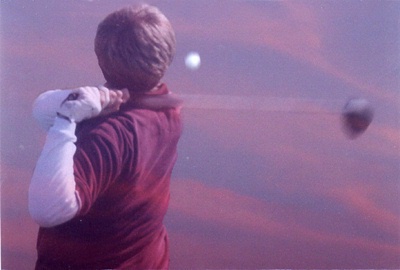All Nonfiction
- Bullying
- Books
- Academic
- Author Interviews
- Celebrity interviews
- College Articles
- College Essays
- Educator of the Year
- Heroes
- Interviews
- Memoir
- Personal Experience
- Sports
- Travel & Culture
All Opinions
- Bullying
- Current Events / Politics
- Discrimination
- Drugs / Alcohol / Smoking
- Entertainment / Celebrities
- Environment
- Love / Relationships
- Movies / Music / TV
- Pop Culture / Trends
- School / College
- Social Issues / Civics
- Spirituality / Religion
- Sports / Hobbies
All Hot Topics
- Bullying
- Community Service
- Environment
- Health
- Letters to the Editor
- Pride & Prejudice
- What Matters
- Back
Summer Guide
- Program Links
- Program Reviews
- Back
College Guide
- College Links
- College Reviews
- College Essays
- College Articles
- Back
Golf Is Not a Game of Perfect book report
When people think of golf, they always think of the smooth swings and the unbelievable putts. Golf looks like a game of motion and precision to most people. However, in reality, golf is a game of mental, and your swing motion is heavily affected by the state of your mental. Today, I’m going to introduce a book called “Golf Is Not a Game of Perfect” by Dr. Bob Rotella, a preeminent golf psychologist to the game's top players. Golf World magazine honored him as one of the "Top 10 Golf Teachers of the 20th Century” and named him "Godfather of Sports Psychology for Golf." This book inspired me a lot in the trough of my golfing career, and here are what I learned from the book.
The first and also most important thing I learned is that golf is a game of mistakes; imperfections are always the case. As my favorite quote in the book said, “Golf is about how well you accept, respond to, and score with your misses. This person who wins is the one who makes the smallest mistakes.” Unlike other things in life, golf is highly challenging because it involves uncountable uncertainties. For example, the wind, the temperature, and the grass on your club face can all affect your golf shot, and none of them can be controlled. After talking with some good golfers, I realized that good golfers gain control in golf by giving up control. What I mean on giving up control is that good golfers change their mind’s thinking pattern to a less tense and forceful way. They change the state of mind from fear to excitement. Fear is connected with excitement because there is always an opportunity behind a fear in golf. For example, when you are afraid to put the ball, you are simultaneously ambitious for the opportunity to put it into the hole. As good golfers experience this sensation, they will askthemselves, “what about it am I’m so excited about?” This question shifts the golfer’s attention from fear to focus on a goal. Another way to give up control, as mentioned in the book, is to focus on what one wants instead of what one doesn’t want. This will keep your mind relax and getting less fear.
The second thing I learned is to choose my goals ambitiously. A quote that I really like in the book said: “[a] person with great dreams achieve great things.” This shows that people, especially golfers, will eventually become what they think of themselves. If I believe that I’m aabove 80 shots golfer, I will never hit below 80 until I become more confident in myself. Confidence is the most important part of mental, of which only about 70% is golf. Confidence in golf is basically how unquestionable you think yourself is. Confidence is how committed you are to your decisions in golf and your belief in your swing. You can only play as good as your mind allowed you to. Golfing potential truly comes down to the attitude or mental of a player. Good golfers believe that there is no such thing as “outdid yourself”, all unbelievable shoots are all glimpses of your true potential. For example, good golfers believes that if they could shoot a 50-yards shot in the hole before, then they can shoot a 50-yards shot in the hole this time too.
After reading this book, I realized how special golf is, and how ignorant I was before. Golf is a whole different thing, and I should develop a completely new system of mindsets when dealing with golf. I have decided to set myself a more ambitious goal and give myself my full confident.

Similar Articles
JOIN THE DISCUSSION
This article has 0 comments.
